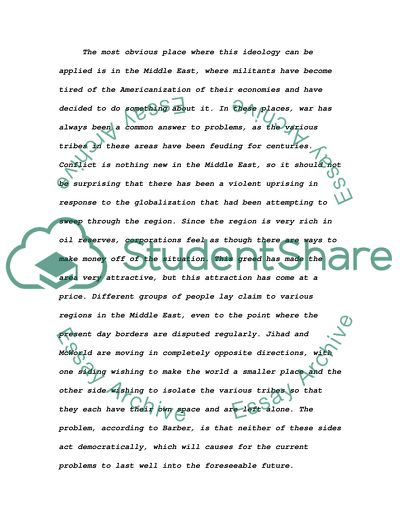Cite this document
(Globalization of Religious Conflicts Essay Example | Topics and Well Written Essays - 1500 words, n.d.)
Globalization of Religious Conflicts Essay Example | Topics and Well Written Essays - 1500 words. https://studentshare.org/military/1545952-mcworld-vs-jihad-by-benjamin-barber
Globalization of Religious Conflicts Essay Example | Topics and Well Written Essays - 1500 words. https://studentshare.org/military/1545952-mcworld-vs-jihad-by-benjamin-barber
(Globalization of Religious Conflicts Essay Example | Topics and Well Written Essays - 1500 Words)
Globalization of Religious Conflicts Essay Example | Topics and Well Written Essays - 1500 Words. https://studentshare.org/military/1545952-mcworld-vs-jihad-by-benjamin-barber.
Globalization of Religious Conflicts Essay Example | Topics and Well Written Essays - 1500 Words. https://studentshare.org/military/1545952-mcworld-vs-jihad-by-benjamin-barber.
“Globalization of Religious Conflicts Essay Example | Topics and Well Written Essays - 1500 Words”. https://studentshare.org/military/1545952-mcworld-vs-jihad-by-benjamin-barber.


